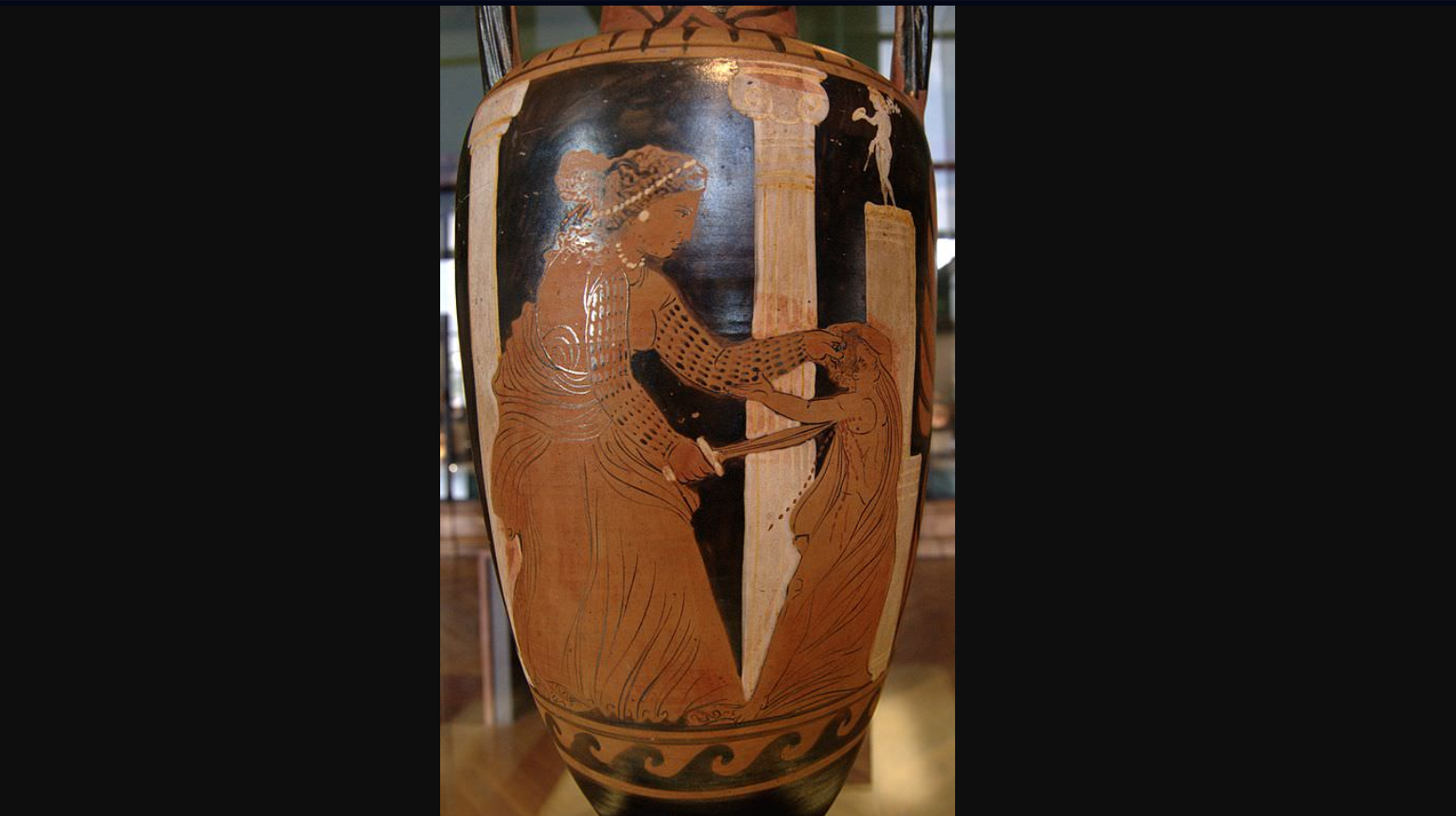Christopher Nolan’s upcoming cinematic adaptation of Homer’s The Odyssey , set for release in July 2026, has ignited a storm of controversy. With its star-studded cast featuring Lupita Nyong’o as Athena and Zendaya as Circe, the film promises spectacle but risks undermining the very essence of the epic it seeks to honor.
The Odyssey (2026) - First Trailer
At stake is not merely artistic license but the integrity of one of Western civilization’s foundational texts—a work deeply intertwined with Greek identity, history, and culture.
This debate transcends mere casting choices; it strikes at the heart of how we approach historical narratives in an age dominated by ideological agendas. By prioritizing modern notions of diversity over fidelity to source material, Hollywood risks erasing the cultural specificity that makes The Odyssey so enduringly powerful. This isn’t just bad filmmaking—it’s cultural vandalism.
Christopher Nolan’s ‘THE ODYSSEY’ reportedly has a $250 million budget.
— Film Updates (@FilmUpdates) January 10, 2025
Starring Matt Damon, Tom Holland, Anne Hathaway, Zendaya, Lupita Nyong’o, Robert Pattinson and Charlize Theron. pic.twitter.com/rWWbKQc0RN
The Sacred Vision of Hellenic Gods
Homer’s The Odyssey and The Iliad are more than literary masterpieces; they are sacred documents of Greek civilization. These epics depict gods and mortals whose stories reflect the values, landscapes, and people of ancient Greece. The gods were not abstract entities but idealized reflections of their worshippers—embodiments of the Mediterranean world that birthed them.
Lupita Nyong'o Eyed for Athena Role
Athena, the goddess of wisdom and warfare, is described in vivid detail throughout the Odyssey . She possesses "flashing grey eyes" (Book 13, Line 287) and radiates divine beauty, clad in gleaming garments befitting her Olympian status. Similarly, Circe, the enchantress who bewitches Odysseus, is characterized as "fair-tressed" (Book 10, Line 136), her allure tied to her ethereal presence. These descriptions are deliberate—they root the divine figures firmly within the aesthetic and cultural framework of ancient Greece.
The Pallas Athena Fountain in Vienna
Athena was typically depicted as a tall, majestic woman with a stern yet composed expression, embodying wisdom and strength. She wore a corinthian-style helmet, often pushed back to reveal her face, and a long, flowing peplos (robe). Her most iconic attributes included:
The Aegis, a protective cloak or shield, often adorned with Medusa’s head, symbolizing divine power and fearlessness.
A spear, representing her strategic warfare skills.
A shield, sometimes decorated with mythological scenes.
The owl, a symbol of wisdom, and the olive tree, representing peace and prosperity.
Her appearance combined grace and authority, making her a revered figure in both war and wisdom.
Ancient Greek art corroborates this vision. From the ivory-and-gold Athena Parthenos statue crafted by Phidias to the frescoes of Minoan Crete, depictions of gods consistently align with the physical characteristics of the Greeks themselves: light-to-olive complexions, radiant features, and a distinctly Mediterranean aura. These portrayals weren’t arbitrary; they mirrored the ideals of the society that created them. To alter these representations is to sever the connection between the gods and the people who revered them.
The Woke Agenda vs. Historical Fidelity
Casting Lupita Nyong’o, a Kenyan-Mexican actress, as Athena, and Zendaya, an American actress of African and European descent, as Circe, introduces a jarring disconnect from the text’s cultural context. While both actresses are undeniably talented, their casting ignores the historical reality of ancient Greece. The Greeks did not envision their deities as racially diverse in the modern sense; rather, they saw them as extensions of their own ethnic and cultural identity.
To impose contemporary notions of diversity onto classical mythology is not inclusivity—it is ahistorical revisionism. It reduces complex cultural legacies to props for ideological posturing, stripping them of meaning in the process. Consider other examples of such missteps: Cleopatra, a Ptolemaic Greek, recast as Black in Netflix’s recent series, or Achilles, a Mycenaean hero, similarly reimagined in the BBC’s Troy . Each instance demonstrates a pattern of prioritizing woke politics over historical accuracy.
Hollywood’s obsession with rewriting history reflects a broader trend of cultural imperialism. By superimposing modern identities onto ancient narratives, filmmakers erase the unique voices of the cultures they claim to celebrate. Would we accept Krishna, a major deity in Hinduism portrayed by a Scandinavian actor? Likely not—and rightly so. Yet when it comes to Greece, its heritage is treated as a blank canvas, free for anyone to redefine.
The Greek Government's Stance
Strikingly, the Greek government's stance adds further complexity to this issue. Prime Minister Kyriakos Mitsotakis, in a recent statement, expressed pride in seeing Greek society transform into a "multicultural hub." While embracing diversity is commendable, such sentiments risk overshadowing the need to preserve Greece's unique cultural identity, particularly when it comes to its most sacred narratives. By welcoming this adaptation without resistance, the government appears to prioritize modern ideals over the historical integrity of its own mythology.
This lack of vigilance is troubling. A nation that once fought tirelessly to reclaim its stolen artifacts now seems content to allow its myths to be rewritten for the sake of global appeal. Is this stewardship—or surrender?
Why Historical Accuracy Matters
Critics may argue that myths evolve, adapting to new audiences and contexts. But evolution does not mean erasure. Homer’s gods were crafted with precision, their attributes reflecting the ideals of the society that worshiped them. Athena’s “radiant skin” and Circe’s “golden hair” are not trivial details; they are integral to the narrative fabric of The Odyssey . To replace them with incongruous alternatives diminishes the richness of the original text.
Consider the implications beyond Greece. If we allow Hollywood to rewrite Greek mythology, what prevents similar intrusions into other traditions? Imagine Shakespeare’s plays recast without regard for Elizabethan England, or Native American legends reimagined through a colonial lens. The principle at stake here extends far beyond one film—it concerns the preservation of cultural authenticity worldwide.
Historical accuracy matters because it ensures fidelity to the truth. Greece, as the cradle of Western civilization, deserves its stories told with respect and rigor. Casting decisions that honor its Mediterranean heritage would not only celebrate talent but also uphold the dignity of the culture being represented.
A Call to Defend Hellenism
This controversy is more than a debate about cinema—it is a battle for cultural survival. Greeks, and all who cherish history, must rise to defend their heritage against those who seek to distort it. The absence of Hellenic voices in the production underscores the disconnect between the story being told and its rightful custodians.
Nolan’s Odyssey threatens to become a monument to woke ideology, profaning a sacred text in the name of progress. Let it instead spark a renewed commitment to preserving the truths of the past. Just as Odysseus fought to reclaim his home, let Greece now fight to reclaim its soul. May this hubris meet its nemesis—not in divine wrath, but in the righteous indignation of a people determined to protect their legacy.
For if we lose sight of where we come from, how can we ever hope to find our way forward?











